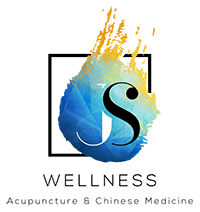18 Sep The Differences Between Git, GitHub, and GitLab
GitHub encourages community engagement and contribution through features such as forks, stars, and watchers. Since GitLab is an open-source project, developers can download the source code and self-host GitLab projects on their local servers and cloud providers. The main selling point of GitHub is that it lets developers store their Git repositories in the cloud. This makes it easy for developers to collaborate on the same project at once. Learn about the additional functions these platforms provide and how to host your own Git repository. Explore how GitHub and GitLab can be used for key scenarios like performing automatic tests or implementing continuous integration.
git Add vs Git Add: Understanding the Differences
For such teams, a focus on the DevOps lifecycle and a full set of features such as issue tracking and security tools are essential. GitLab stands out from other platforms as it covers the entire DevOps lifecycle. It is a “one-stop shop” for code management, testing, and deployment from within one interface.
- Imagine if you had to revert those changes manually, your users would be stuck with a broken service for ages.
- Here are our insights into the future trends and advancements in version control and DevOps platforms.
- I can push the branch up at any time without impacting the main branch, and this is recommended so that I have a backup of my work.
- Thanks to Git’s non-linear development nature, a Git user can work remotely on any part of the project, make necessary changes, and then update the project.
They don’t need to be continuously connected to a central repository (aka repo), or have a server running to use Git. Yes, both platforms offer free plans that include unlimited public and private repositories. GitHub’s interface is clean and simple, making it easy for new users to navigate. GitLab, on the other hand, offers a more feature-rich interface, which can be overwhelming for beginners but powerful for advanced users. GitHub focuses on speed and simplicity, while GitLab emphasizes a comprehensive, all-in-one experience.
Regarding pricing, GitLab offers both free and premium plans and covers the needs of different development projects. Both platforms provide a variety of useful tools for software development, with the central element in both being a Git repository. A significant difference between the two is that GitLab maintains the source code of the application publicly on the internet under an open-source license. If your project involves open-source development, GitHub can streamline your workflows and foster effective collaboration.
Owned by Microsoft, it boasts a massive community of over 40 million users. GitHub simplifies collaboration by allowing public and private repositories, making it a go-to for open-source projects. Git is an open-source version control system that lets developers save snapshots of their codebase.
- GitLab focuses heavily on providing an all-in-one solution for the software development lifecycle, offering features that go beyond version control and collaboration.
- GitLab is a repository hosting manager tool developed by GitLab Inc and used for the software development process.
- They are all instrumental in tracking changes in your codebase and increasing collaboration between teams.
- GitHub offers security features such as dependency vulnerability alerts, secret scanning, and code scanning to mitigate potential security issues.
- Our development tools, like GitHub and GitLab, already supports the change.
Understanding Git: The Backbone of GitLab and GitHub
Depending on your organizational needs, you can use GitLab as a cloud service or host it on-premises. Developers can use it to do more than just manage their source code but also the entire project management lifecycle. They can assign tasks, review merge requests, troubleshoot issues, and much more. GitLab is ideal if you need a comprehensive DevOps platform with integrated CI/CD and security features. It’s perfect for those who prefer an all-in-one solution for the entire software development lifecycle.
General Information about Git and Git Repositories
In this article, we will explore the differences between GitLab and GitHub, highlighting their features, benefits, and use cases. Choose GitHub if you want a collaborative platform to host repositories, manage projects, and interact with a community of developers. It’s particularly suited for open-source projects and small to medium-sized teams. GitLab is ideal for organizations that need an end-to-end solution for software development and deployment. It provides extensive DevOps features, often making it a preferred choice for enterprise teams. Its strength lies in fostering collaboration and providing a broad ecosystem of integrations.
What Are the Benefits of Git Vs. GitHub vs GitLab?
Instead you can revert to the previous working commit (version) deploy that and debug the issue locally without your service having too much downtime. Imagine if you had to revert those changes manually, your users would be stuck with a broken service for ages. After that you can push the changes up to a remote repository (this is where GitHub and co. come in). If a single character in the codebase changes, the generated hash will also change and thus Git can track whether something has changed and whether any files are corrupted. Every time you’re ready to save your changes on a branch you “commit” those changes.
GitHub
This configuration automates the build, test, and deployment stages each time changes are pushed to the repository. HBLAB operates with a customer-centric approach,focusing on continuous improvement to deliver the best solutions. Neither is inherently “more secure” in all contexts; the best choice depends on your organization’s specific needs, security requirements, and deployment preferences.
Git vs Gitlab vs GitHub: What’s the Difference?
Shannon Jackson-Barnes is a freelance copywriter from Melbourne, Australia. As a contributing writer for Orient Software, he writes about various aspects of software development, from artificial intelligence and outsourcing through to QA testing. Whether you need an extension of your existing team or a partner to assume full responsibility, our open and honest communication offers total peace of mind. GitHub is considered a faster service to work with, as it prioritizes merging new branches with the main branch. As a result, the main branch is always ready to deploy, and any changes can be rolled back.
Understanding these differences can help you choose the right tool for your development needs. Whether you’re an individual developer, a team, or an enterprise, there’s a solution tailored to your requirements. GitLab is built around Git; using GitLab generally requires Git for version control to manage your source code.
These features help organizations to secure their codebase and ensure that only authorized users can make changes to the projects. Git is a command-line tool that can be used on any operating system, making it accessible to developers working on different platforms. It provides a simple and efficient way to manage code changes without the need for a graphical user interface. GitLab, on the other hand, is a web-based platform that can be accessed through a browser, making it easy to use for developers who prefer a visual interface.
Git vs GitHub vs GitLab: The Differences
Local and Remote Repositories are critical to understanding Git’s functionality. A local repository resides on your own machine, while a remote repository (commonly hosted on platforms like GitHub or GitLab) enables collaboration among developers. Ultimately, the difference between git and gitlab choice of the right tool depends on your project’s scale, CI/CD requirements, desired security level, financial capacity, and long-term organizational strategy. Whichever tool you choose, a clear understanding of each platform’s role and capabilities will empower you to maximize development efficiency and achieve your business goals. If you’re new to programming or software development, you’ve probably come across terms like Git, GitHub, and GitLab.


No Comments